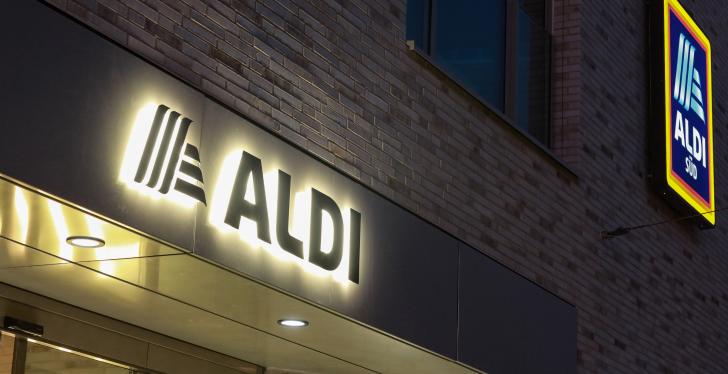Job maker 4.0: e-commerce
Retail training and continuing education programs are booming
PantherMedia / Dmyrto_Z

Digitization in retail and e-commerce growth present fresh challenges for retail employees and the retail world. That’s why interest in the new "E-Commerce Merchant" dual vocational training course offered by Germany’s HDE Retail Association remains high.
The 2019/2020 school year marked an astonishing 1,600 new training contracts. The growing interest underscores the increased demand on the part of companies.
Students enrolled in the E-Commerce Merchant vocational education program embark on a systematic approach to qualify for a career in e-commerce. The new Specialist for E-Commerce degree program now continues this success story. This exist since December 2019. We spoke to Katharina Weinert, Head of Education Policy and Vocational Training at HDE.
Ms. Weinert, e-commerce has always been an industry that is constantly evolving. Many developments and trends often happen at a rapid pace. Is the training program continually adapted and adjusted to reflect these changes?
Katharina Weinert: I should first point out that the general outline of the education program is the same throughout. We always make sure we write the program educational objectives in an adaptable format. When you take a job-specific skill such as "creating customer touch points or channels of communication", we don’t dictate "how" this should be taught. Instead, the student is tasked with choosing and using customer communication channels and adapting the choice to changing consumer behavior. Another example of this is voice-activated virtual assistants.
The curriculum is worded to facilitate and reflect these modifications. This flexibility is required as we don’t want to limit the scope of companies. We don’t aim to define the channels students should use for communication or pin down whether he or she should serve the customer at the store or use social media as a strategy. The main objective is that the students become familiar with the many ways retailers can communicate with their customers.
Teachers must also be able to adapt to changing instruction environments and be open to new methods and strategies. They mustn’t cling to textbooks, since some of them become obsolete and outdated by the end of the school year.
The same applies to companies. Somebody once asked me what they should do if an apprentice has completed the program and introduces a distribution channel the store has never even heard of before. I explained that this is actually the student’s job. He or she should introduce new ideas to your company, explain them and outline the potential, thus bringing innovation to your organization.
What are key elements of the practical training at the company?
Some companies go beyond the curriculum and introduce students to retail programming or let them venture into logistics or learn about key warehouse processes. Yet other companies send students to brick-and-mortar businesses. And some partner up with other companies and offer so-called "joint training courses". For example, when an online retailer outsources marketing to an agency, the retailer can still train the student in this area thanks to a partnership with said agency. In other words, companies can team up with partners to meet the goals set forth in the curriculum.
How are examinations conducted?
Students are first asked to work on a typical e-commerce project in their company. They can choose a topic and create a page for the online store for example. They must then write and submit a final report that outlines their work. This is followed by an oral exam.

Let's take a look into the future. The first students will complete their education next year. What are the continuing education opportunities they might embark on afterwards?
Since December 2019, the German Bundesgesetzblatt (Federal Law Gazette - BGBl), has approved the official and nationwide uniform Specialist for E-Commerce education program. This continuing education is aimed at E-Commerce Merchants, Retail Specialists or Banking Specialists. To embark on this program, you must have completed a commercial apprenticeship program or - and this is why this educational option is so interesting for employees – you have extensive experience in e-commerce and have taken a learning by doing approach as it were. You may also apply for this path if you have dropped out of college but have already amassed 90 CTS points (academic credits) towards a business degree. So-called Abiturientenprogramme (dual vocational training programs after graduating German high school/secondary school) like the ones seen in other retail sectors, are also starting to emerge pertaining to e-commerce.
What makes these “Abiturientenprogramme” so unique?
“Abiturientenprogramme” have a retail focus as the industry exhibits an increased need for management personnel, including category managers, marketing sales managers, e-commerce key account managers or retail logistics and sales experts. The participants undergo an accelerated and intense program to learn the responsibilities of a manager. Here is one example: The dual-track Retail Merchant program is accelerated and takes only one and a half years to degree completion. Subsequently, students continue their education to become a Retail Specialist, which takes another one and a half years. Now let’s take the example of a young man. If he completes the training to become an apprenticeship trainer, he has actually completed three degrees in three years’ time as he is then also a retail manager. Here is the interesting aspect for college dropouts or high school graduates (German: Abiturient, a German student who is leaving secondary school and going to university after taking the final examination) who look for the fastest way to a bachelor’s degree: the Retail Specialist or Specialist for E-Commerce programs are both deemed German Qualifications Framework level 6 (DQR) and are therefore equivalent to a bachelor’s degree. Students can reach this level in three years and with plenty of on-the-job training and practical experience. Some feel this concept is more conducive to their personal learning style versus merely acquiring theoretical knowledge in college studies, making this a very popular choice. That is why these so-called “Abiturientenprogramme” now also become more prevalent in e-commerce.









